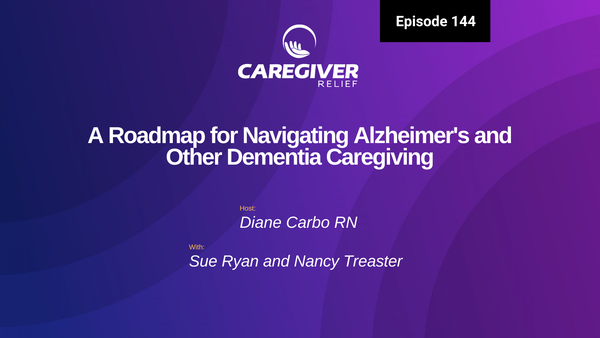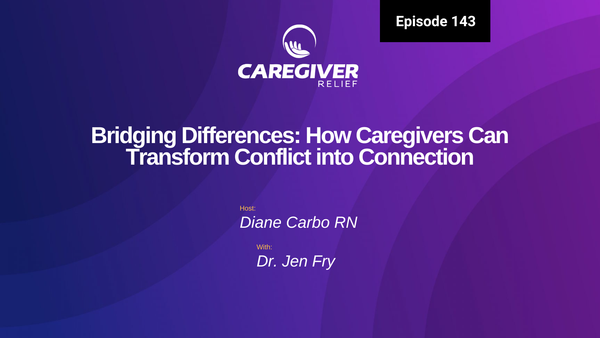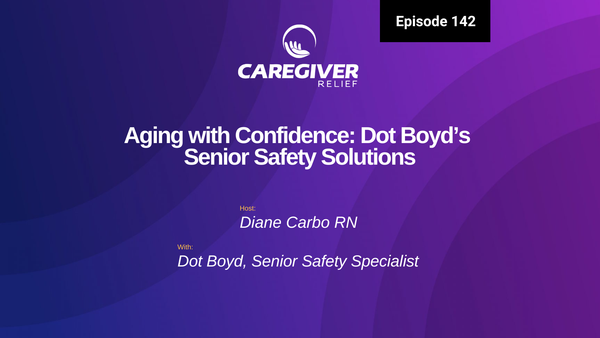Mastering Effective Communication throughout All Stages of Alzheimer's Disease
Incorporate these dementia communication tips into your home care strategy for more success in interacting with and caring for your loved one. Learn how to maintain eye contact, not take behaviors personally, and adjust your communication style to suit their abilities.

Clear, concise, and compassionate communication is essential when interacting with individuals living with Alzheimer's disease. Understanding the challenges and changes that come with the progression of the disease can greatly improve communication and enhance the overall quality of relationships.
Here's what you need to know about communication and dementia:
Communication is the means by which we express our needs, desires, knowledge, and feelings. It encompasses attitude, tone of voice, facial expressions, and body language. It is the foundation of our relationships.
As Alzheimer's disease progresses, a person's communication skills gradually decline. Expressing thoughts and emotions becomes more difficult, often leading to frustration.
Changes in communication vary depending on the individual and the stage of the disease. Common changes include difficulty finding the right words, repeating familiar words, describing objects instead of naming them, losing train of thought easily, difficulty organizing words logically, reverting to a native language, speaking less often, and relying more on gestures.

Communicating in the Early Stages of Alzheimer's Dementia
In the early stage of Alzheimer's disease, individuals can still engage in meaningful conversation and social activities. However, they may repeat stories, feel overwhelmed by excessive stimulation, or struggle to find the right words.
Here are tips for successful communication during this stage:
Don't make assumptions about a person's ability to communicate based on their diagnosis. Each person's experience with Alzheimer's is unique.
Include the person with the disease in conversations and address them directly, rather than speaking to their caregiver or companion.
Understanding Mild Alzheimer's: How to Communicate effectively
When someone is in the early stages of Alzheimer's, they can still participate in conversations and social activities. However, they may repeat stories, struggle with finding words, or feel overwhelmed. Here are some tips for successful communication:
Don't assume someone's ability to communicate based on their diagnosis. Alzheimer's affects each person differently.
Include the person with Alzheimer's in conversations. Don't exclude them because of their condition.
Talk directly to the person, not just their caregiver or companion.
Take the time to really listen to their thoughts, feelings, and needs.
Give them space to respond and avoid interrupting, unless they specifically ask for help.
Ask them what they feel comfortable doing and what they may need assistance with.
Find the communication method that works best for them, whether that's face-to-face, email, or phone calls.
Don't be afraid to bring some humor into the conversation. Laughter can lighten the mood and make communication easier.
Stay connected and don't pull away. Your honesty, friendship, and support are crucial to the person with Alzheimer's.
By following these tips, you can enhance communication and maintain meaningful connections with someone in the early stages of Alzheimer's.

Communication Strategies for the Middle Stages of Alzheimer's Dementia
The middle stage of Alzheimer's, which is typically the longest, presents greater challenges in communication. Here are tips to enhance communication during this stage:
Engage the person in one-on-one conversations in a quiet environment with minimal distractions.
Speak slowly and clearly, maintaining eye contact to show attentiveness.
Allow ample time for the person to respond, considering their need to process information.
Demonstrate patience and offer reassurance, encouraging the person to express their thoughts.
Ask one question at a time and consider yes or no questions to simplify communication.
Avoid criticism or correction; instead, listen actively and repeat what was said to clarify understanding.
Refrain from arguing or engaging in disagreements. Respect the person's perspective even if it differs from your own.
Break down instructions into clear, step-by-step tasks to avoid overwhelming the person.
Utilize visual cues and written notes when verbal communication becomes confusing.

Communication Strategies for the Late Stages of Alzheimer's Disease
In the late stage of Alzheimer's disease, nonverbal communication becomes more prevalent, requiring different strategies. Here are tips for effective communication at this stage:
Approach the person face to face and introduce yourself to establish a connection.
Encourage nonverbal communication and ask the person to point or gesture if their message is unclear.
Emphasize touch, sights, sounds, smells, and tastes as forms of communication.
Pay attention to the emotions being expressed, as they may be more important than the words or sounds.
Treat the person with dignity and respect, avoiding condescension or making them feel invisible.
Remember that your presence and friendship matter, even if you're unsure of what to say.
By implementing these communication tips, you can foster understanding, empathy, and connection with individuals living with Alzheimer's disease at every stage.
Incorporating thoughtful dementia communication techniques into your caregiving strategy can greatly enhance your ability to provide quality care. By integrating these ideas, you can create a more successful and meaningful caregiving experience for both you and your loved one.
Basic Communications Strategies when Communicating With an Alzheimer's Patient
Maintain Eye Contact: When engaging with your family member who has dementia, it's important to establish and maintain eye contact. This simple action demonstrates your genuine interest and focused attention, fostering a sense of connection and understanding. Avoid staring or glaring, but make sure to establish eye contact during conversations.
Avoid Taking Behaviors Personally: Understand that individuals with dementia are dealing with a degenerative brain condition, which can result in challenging behaviors and words. These actions are not a reflection of their character but rather a consequence of their illness. When faced with difficult behaviors or remarks, take a step back and practice mindfulness. Refrain from reacting impulsively based on your emotions; instead, interpret their actions as a means of communication and a call for assistance.
Adapt Your Communication Style: Recognize that your family member's ability to communicate and display symptoms can vary from day to day. Be prepared to adjust your communication style and caregiving techniques accordingly, depending on their daily capabilities and verbalization skills.
Monitor Changes in Confusion: Dementia can cause various forms of confusion. Stay vigilant for alterations in confusion levels, but avoid jumping to conclusions that the dementia is worsening. Consider factors such as sensory declines, metabolic changes, nutrition, hydration, and infections (e.g., urinary tract infections, pneumonia) as potential triggers for changes in cognitive status. Tailor your caregiving approach to address the specific causes of increased confusion.
Expect Gradual Decline: Understand that dementia is a progressive condition with declining abilities over time. Different individuals experience different rates of decline; some may experience a slow decrease, while others might exhibit sudden drops followed by periods of stability. Be prepared for these changes and adjust your care plan accordingly.
Know and Adjust to Abilities: Understand the abilities your loved one with dementia still possesses. Focus on what they can do rather than dwelling on what they cannot. Your caregiving approach should prioritize encouraging independence and adapt as their abilities change over time. Be patient and creative in finding ways to support their capabilities.
Tailor Communication to Their Understanding: Focus on communicating with your loved one at their level of understanding. Recognize that behavioral issues might arise due to their cognitive condition. Develop a person-centered care profile that takes into account their past experiences and coping mechanisms. Be compassionate and patient, even if they hold beliefs that differ from reality.
Show Sensitivity and Gentleness: Perhaps the most vital aspect of dementia care is the expression of empathy. Your genuine care and empathy for the individual's well-being are paramount. Practice understanding their emotions and concerns, and take meaningful actions to address their needs and comfort.
More on Communication Tips in Alzheimer's Disease...
Incorporate these dementia communication strategies into your caregiving routine
By integrating these dementia communication strategies into your caregiving routine, you can create a more enriching and supportive environment for your family member. These techniques not only facilitate effective communication but also foster a deeper connection and improved quality of life for both you and your loved one.
You might also like this article:







